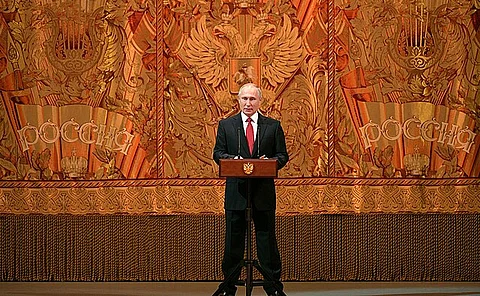

President Vladimir Putin has outlined stringent conditions for ending the war in Ukraine, demanding a written pledge from Western leaders to halt NATO's eastward expansion, according to three Russian sources familiar with the negotiations, as reported by Reuters.
The sources, speaking anonymously, said Putin also seeks the lifting of Western sanctions, resolution of frozen Russian assets, and protections for Russian speakers in Ukraine.
These demands aim to address what Russia calls the "root causes" of the conflict, particularly NATO enlargement and Western support for Ukraine.
"Putin is ready to make peace but not at any price," said one senior Russian source with knowledge of Kremlin thinking.
The sources emphasized that Putin insists on a formal commitment barring NATO membership for Ukraine, Georgia, Moldova, and other former Soviet republics.
Russia is drafting a memorandum to outline a peace accord, including ceasefire timing, following Putin’s over two-hour discussion with U.S. President Donald Trump last week.
However, Russia could not estimate the drafting timeline, prompting accusations from Kyiv and European governments of stalling as Russian forces advance in eastern Ukraine.
Trump, frustrated by Putin’s refusal to engage in ceasefire talks, warned on Tuesday that the Russian leader was "playing with fire" amid battlefield gains.
Trump, who has expressed a desire to end Europe’s deadliest conflict since World War II, suggested on social media that Putin had "gone absolutely CRAZY" after an unprecedented air attack on Ukraine.
The first Russian source warned that if Putin cannot secure a deal on his terms, he aims to demonstrate through military victories that "peace tomorrow will be even more painful."
A second source noted Putin’s hardened stance, insisting on retaining control over four eastern Ukrainian regions claimed by Russia.
Kyiv remains steadfast, asserting that Russia should not have veto power over its NATO aspirations and demanding strong Western security guarantees to deter future attacks.
NATO has historically maintained its "open door" policy, with no response from its spokesperson to Reuters’ inquiries.
The Kremlin also declined to comment.
As Russia controls nearly one-fifth of Ukraine, the conflict continues to exact heavy costs on both nations.